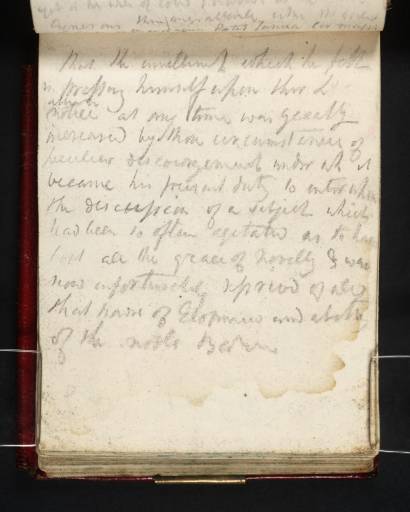Turner’s inscription (not hitherto transcribed or published) reads:
that the unwillingness which he felt | in pressing himself upon the Ld | [attention inserted] notice at any time was greatly | increased by those circumstances of | peculiar discouragement under wh it | became his present duty to enter upon | the discussion of a subject which | had been so often agitated as to have | lost all the grace of novelty & was | now unfortunately deprived of all | that power of Eloquence and ability | of the noble Baron
Turner paraphrases part of a speech by Richard Hely-Hutchinson, 1st Earl of Donoughmore (1756–1825), an Irish representative peer, during a debate on a Roman Catholic petition in the House of Lords, 6 June 1810. Lord Donoughmore was an advocate of Catholic emancipation in Ireland and presented petitions for Irish Catholic relief almost annually from this year. The ‘noble Baron’ is Lord Grenville (1759–1834), a fellow-supporter who had been forced to resign as Prime Minister over the issue in 1807.
Turner was presumably more interested in the language than the subject of Lord Donoughmore’s speech, and copied this from a newspaper report.
1
David Blayney Brown
May 2011

